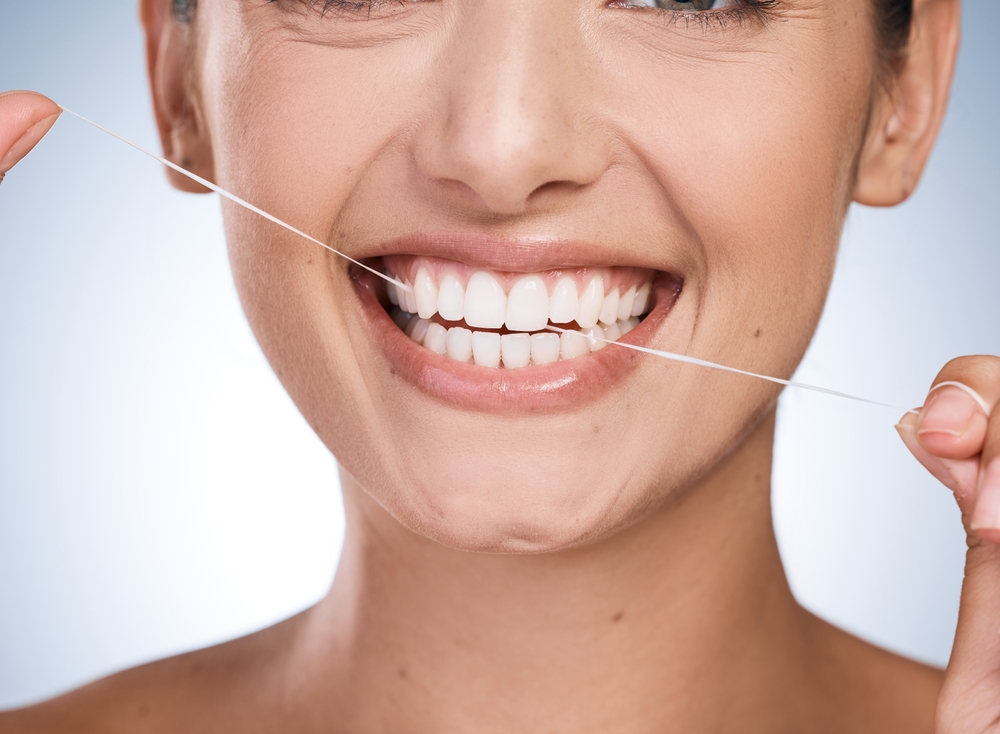Why Choose Madison Dental Care for Your Aftercare
At Madison Dental Care, Dr. Burgess, Dr. Roth, and Dr. Randall bring over 35 years of trusted dental excellence to North Alabama. Our comprehensive approach to Invisalign aftercare includes personalized aligner protocols, advanced dental technology, and ongoing support to ensure your smile remains beautiful for life. As part of our aftercare, we provide tips for taking care of your Invisalign clear aligners, including advice on cleaning, handling, and maintenance. We proudly serve patients from Madison, Huntsville, Athens, and Decatur with convenient appointment scheduling and flexible payment options.
Why Invisalign Aftercare Matters Long After Your Aligners Are Gone
 After months of wearing Invisalign aligners, your teeth have moved into their new positions. However, teeth naturally want to shift back toward their original positions—a process called relapse. Without proper aftercare, you could lose the beautiful results you worked so hard to achieve.
After months of wearing Invisalign aligners, your teeth have moved into their new positions. However, teeth naturally want to shift back toward their original positions—a process called relapse. Without proper aftercare, you could lose the beautiful results you worked so hard to achieve.
Proper Invisalign aftercare involves wearing aligners, maintaining excellent oral hygiene, and attending regular dental checkups with our Madison dentist. Regular cleaning of both your teeth and aligners is essential to support oral health, prevent plaque buildup, and avoid issues like bad breath. This comprehensive approach ensures your new smile remains stable and healthy.
Aligner Care: Your Key to Long-Term Success
How Long to Wear Your Aligner
Initially, you’ll need to wear your aligner full-time (20-22 hours daily) for several months. Aligners should be worn exactly as directed by your dentist, and putting them in properly each time—using recommended techniques—ensures the most effective results. Your dentist will provide specific instructions based on your case. Gradually, you may transition to nighttime-only wear, but many patients benefit from lifelong aligner use to maintain their results.
Caring for Your Aligners
Keep your aligners clean and functional with these simple steps:

- Soak and clean your aligners daily.
- Always brush and floss your teeth before putting your aligners back in to prevent plaque buildup.
- Avoid foods and drinks that can stain the aligners.
- Store your aligners in the provided case when not wearing them to avoid improper storage or cleaning methods that risk damaging the trays.
How Do I Clean My Invisalign Trays Properly?
Soaking Your Aligner Tray
Cleaning your aligners daily is essential for maintaining oral hygiene and ensuring the effectiveness of your Invisalign treatment. After removing your aligners, start by rinsing them with warm water to remove saliva and debris. For a deeper clean, soak your aligners daily in lukewarm water with Invisalign cleaning crystals or cleaning crystals—this helps keep them odor-free, hygienic, and clear. Avoid using very hot water, as it can warp or damage the aligner material.
Cleaning Your Aligners
After soaking, wash your aligners with mild soap and gently brush them with a soft toothbrush to remove any remaining residue. Rinsing thoroughly after brushing and soaking is important to prevent bacterial buildup. As a gentle cleaning option, you can use sodium bicarbonate (baking soda) to help disinfect and clean your aligners without causing damage.
To prevent stains, avoid colored or abrasive cleaning agents, and always brush and floss your teeth before reinserting your aligners. Regular brushing and flossing help prevent plaque buildup, cavities, and gum disease, keeping both your teeth and aligners clean and clear.
Maintaining Excellent Oral Hygiene Post-Invisalign
Daily Cleaning Routine
Without aligners covering your teeth, maintaining oral hygiene becomes easier, but no less important:
- Brush twice daily with fluoride toothpaste, spending at least two minutes cleaning all tooth surfaces. Pay special attention to areas that may have been harder to clean during treatment. Regular cleaning helps prevent bad breath and keeps your mouth healthy.
- Floss daily to remove plaque and food particles between teeth. Consider using a water flosser for additional cleaning power, especially if you have fixed aligners.
- Use mouthwash to kill bacteria and freshen breath. Choose an alcohol-free formula to avoid dry mouth.
Professional Dental Care
Schedule regular teeth cleanings and checkups with your dental team every six months. Professional cleanings remove tartar buildup that home care can’t eliminate, while routine exams catch potential problems early. As part of your long-term dental health plan, be sure to schedule follow-up visits with your orthodontist and follow their guidance on caring for retainers after Invisalign treatment.
Foods and Habits to Consider
Protecting Your Investment
While you no longer need to remove aligners before eating, certain foods and habits can still threaten your results:
- Hard foods like ice, nuts, and hard candies can chip or crack teeth that may be more sensitive after orthodontic movement.
- Sticky foods such as caramels and gum can pull on dental work and make cleaning difficult.
- Teeth grinding (bruxism) can cause teeth to shift and aligners to wear out quickly. If you grind your teeth, discuss night guard options with your dental provider. Not taking care of your aligners or engaging in risky habits can risk damaging your aligners and compromising your treatment results.
Monitoring Your Results
Signs to Watch For
Contact your dental office if you notice:
- Teeth feeling loose or shifting
- Aligners are becoming tight or are not fitting properly
- Unusual sensitivity or pain
- Difficulty wearing your aligner consistently
Regular Progress Checks
 Schedule periodic aligner checks with your orthodontist to ensure proper fit and function. Early detection of tooth movement allows for adjustments before problems develop.
Schedule periodic aligner checks with your orthodontist to ensure proper fit and function. Early detection of tooth movement allows for adjustments before problems develop.
Don’t wait for problems to develop! Call Madison Dental Care at (256) 772-2626 to schedule your aftercare check-up. Our experienced Madison, AL team, including our skilled orthodontist, monitors your progress to ensure lasting results.
Long-Term Smile Maintenance
Lifestyle Considerations
- Stay hydrated to maintain healthy saliva flow, which naturally cleanses your mouth and protects against decay.
- Limit sugary and acidic beverages that can erode enamel and lead to cavities. When you do indulge, use a straw and rinse with water afterward.
- Don’t use teeth as tools for opening packages or bottles, which can cause chips, cracks, or unwanted tooth movement.
Professional Treatments
Consider professional teeth whitening to enhance your new smile. Cosmetic dentistry services can help you achieve the bright, white smile you’ve always wanted. Regular fluoride treatments during dental visits can strengthen enamel and prevent decay, especially important as your teeth settle into their new positions.
Common Invisalign Issues and Solutions
- Lost or damaged aligners require immediate attention. Contact your dental office right away to prevent tooth movement while replacements are created. Always keep your trays safe and store your tray in its case to avoid loss or damage.
- Aligner discomfort is normal initially but should improve within a few days. If pain persists, schedule an appointment for evaluation.
- Difficulty remembering to wear aligners can be overcome with smartphone reminders, keeping aligners visible as cues, and establishing consistent bedtime routines.


 After months of wearing Invisalign aligners, your teeth have moved into their new positions. However, teeth naturally want to shift back toward their original positions—a process called relapse. Without proper aftercare, you could lose the beautiful results you worked so hard to achieve.
After months of wearing Invisalign aligners, your teeth have moved into their new positions. However, teeth naturally want to shift back toward their original positions—a process called relapse. Without proper aftercare, you could lose the beautiful results you worked so hard to achieve.
 Schedule periodic aligner checks with your orthodontist to ensure proper fit and function. Early detection of tooth movement allows for adjustments before problems develop.
Schedule periodic aligner checks with your orthodontist to ensure proper fit and function. Early detection of tooth movement allows for adjustments before problems develop.